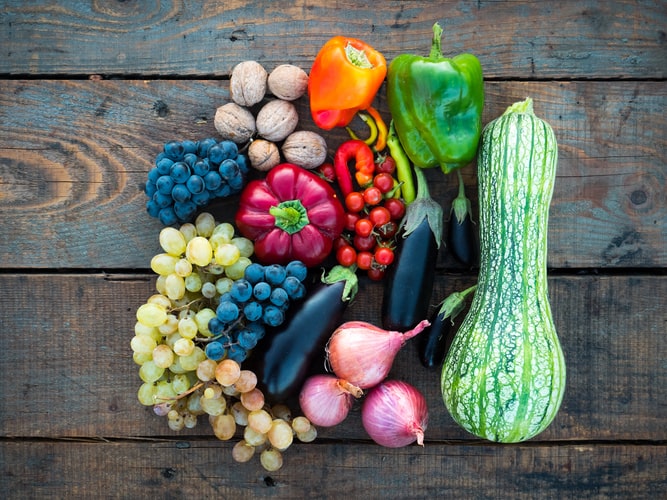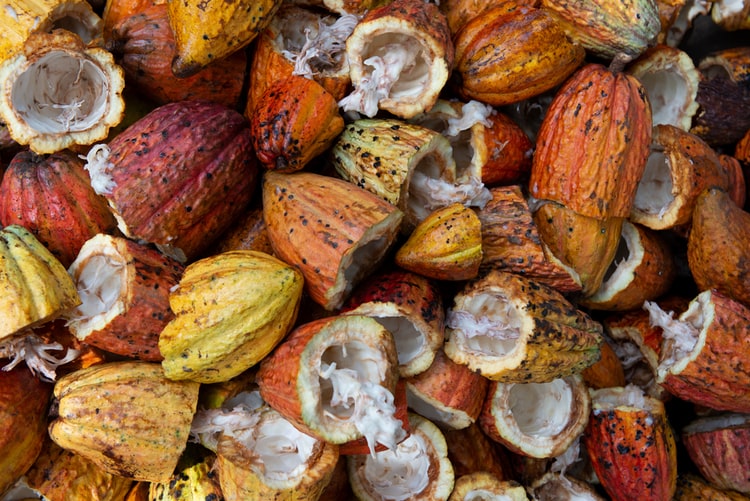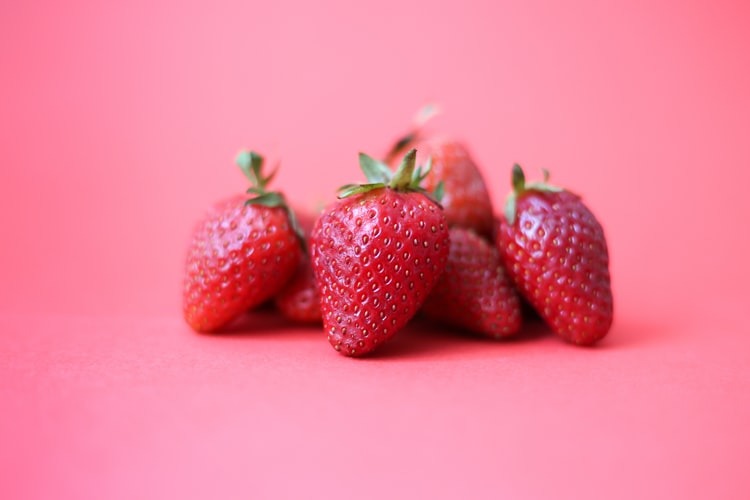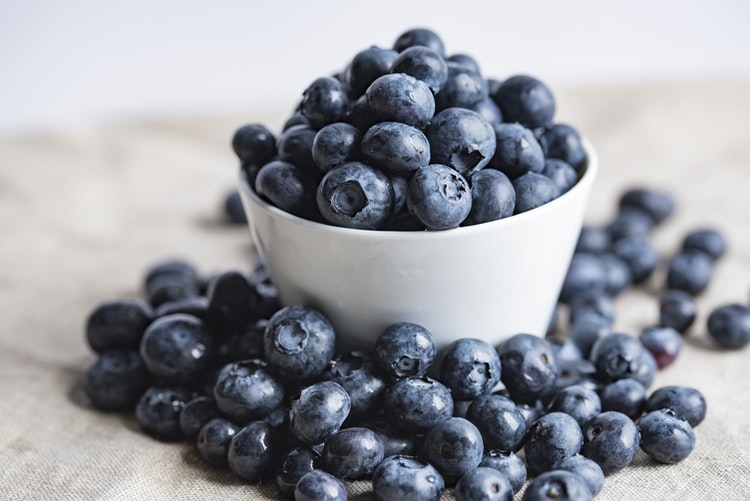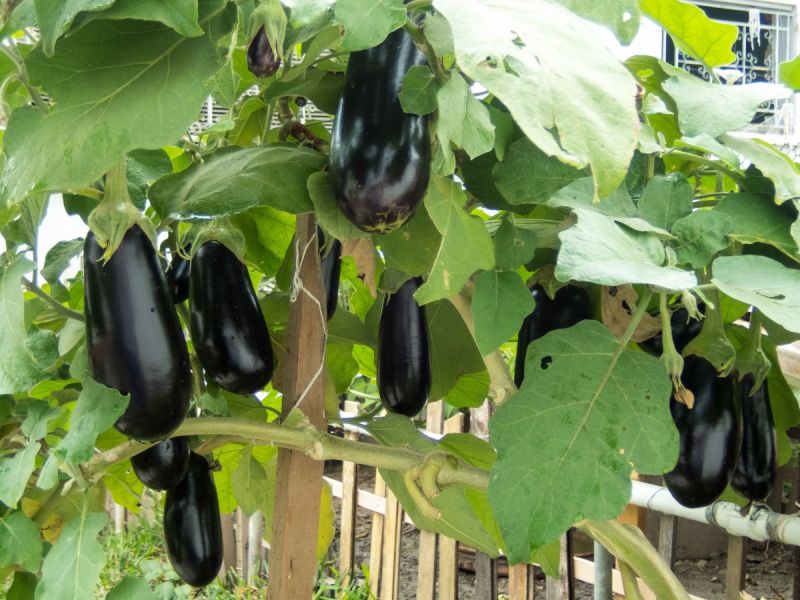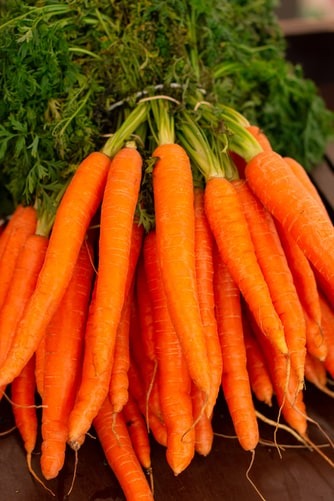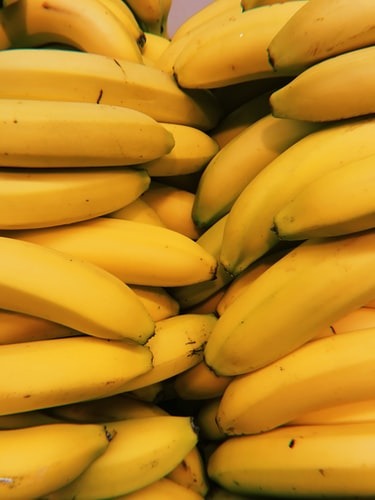When we hear about fruits and vegetables, we think about vitamins, carbohydrates, and some fats. All kinds of edible fruits and vegetables help you somehow, but some of them have hidden qualities that will shock you.
In this time and age of competition and overtime work, we need a healthy body because health is wealth. To get the most out of our body, we must treat it like a temple and pay our tributes properly. Eating productivity-boosting foods is an easy way to do it. Among the over 1,000 types of vegetables and 200 types of fruits eaten worldwide, some specialize in boosting productivity, such as:
1. Cacao
Chocolate is derived from cocoa pods, and hence it is regarded by many as a vegetable. There are a lot of people who argue that it is a fruit, but that is irrelevant when we all just want to enjoy this rich blessing of nature. The natural pods are close to being medicine in their bitterness and health benefits, but with some addition of sugar, they can be taken as a regular snack.
Chocolate, especially dark chocolate, has large quantities of flavonoids, which makes your neural pathways in the brain stronger. This can lead to mitigation of sleep patterns, reduce the effects of stress on the brain, and boost numerous executive functions of the brain. Hence, you will see improved productivity in working memory, focus, attention, adaptability, problem-solving, and emotional regulation.
2. Spinach
Watching Popeye gain superpowers with just a can of spinach may seem like a fantasy, but in real life, it is very much real. Spinach is a grass-like vegetable grown on the ground, and after maturing, its leaves are plucked. You may eat it raw or cook it in any way you like.
Spinach is rich in proteins, inorganic nitrates, vitamin k, and antioxidants. These nutrients benefit our body by improving our cardiovascular system, fighting free radicals, and improving blood clotting. It has been well researched that spinach lowers the rate of cognitive decline, which means your brain will stay active for longer periods. This, in turn, increases your working capacity, motor skills, and learning capacity – all this helps boost your productivity.
3. Avocado
Avocado, an expensive fruit, is a large berry containing a seed that originates from Mexico. It is generally eaten raw or as an addition to your normal breakfast. It is a good source of many vitamins as well as minerals that help your body stay healthy and function properly.
The consumption of unsaturated fatty acids in avocados helps protect astrocytes, a type of brain that leads to a healthy blood flow in the brain. These unsaturated fats can mitigate your blood pressure and avoid the cognitive decline you might face from high blood pressure.
4. Strawberries
Strawberries are known as false fruits. They are commonly considered berries, but botanically, they are not berries. This fruit grows all over the world and is easily available everywhere, whether in flavored or raw form.
Strawberries are high in vitamin C with adequate amounts of sugar and minerals. They are filled with fisetin, a flavonoid that helps increase communication between neurons in the brain. This promotion of signal pathways improves long-term memory and is good for preventing age-related memory loss. Fisetin protects the cultured neurons in your brain that carry your memories. This increases your active learning, memory storage, and information processing speed.
5. Blueberries
Blueberries belong to a group of berries that grow on trees. They are known for boosting immunity and reducing the risk of heart diseases and obesity if consumed regularly. They contain vitamin C, B-6, and dietary fibers, which are good for the digestive system, and that’s not all they can do.
Researchers found out about flavonoid-rich wild blueberries by testing the drink in 7–10-year-old children. The test lasted over 2–6-hour post-consumption concerning their short-term memory, executive function and, mood. The results showed that after consuming the berry juice, the children should have cognitive improvements and a boost in their attention span. This provides evidence that flavonoid-rich drinks such as blueberry juice enhances cognitive functioning.
6. Eggplant
We are all familiar with these purple or white fruits, which are normally considered vegetables. They grow on a seasonal flowering plant and contain seeds. Eggplants are rich in dietary fiber and potassium. Moreover, small amounts of vitamins and iron are also found in them.
This common fruit is rich in natural chemicals called phytonutrients which improve mental health by increasing blood flow to the brain. This blood flow boosts memory and the development of neural pathways. The skin of eggplant contains nasunin, which boosts the communication between brain cells. This, in turn, helps you stay focused and ready for work.
7. Carrots
Carrots are generally orange-colored vegetables that grow underground with a bush on top. These edible roots are rich in nutrients, including niacin, vitamin C and, vitamin A. In addition, they are one of those unique vegetables that cause adverse effects in your body due to over-eating, known as carotenemia.
It is well known that carrots improve eyesight, but now it has been proven that carrots improve brain function. A compound called luteolin present in carrots can reduce age-related memory deficits and inflammation in the brain.
8. Bananas
Bananas are generally considered seedless fruits, but they’re just an herb species related to ginger. The peel of a banana is the fruit. They are sweet and can be eaten in many ways, like raw or with other flavors. They contain a lot of vitamin C and B6, with some dietary fiber and other minerals.
A single banana holds enough amount of sugar your body needs per day. It is filling enough to make it a good snack between meals that helps you focus on your work. Bananas hold sufficient energy to prevent you from eating a lot and help you avoid overeating. With this, you get adequate minerals for your body.
9. Kale
Kale or leaf cabbage belongs to a group of cabbage cultivars with edible leaves. Kale is nutrient-rich as it contains vitamins K, C, B6, A, and various other minerals, such as manganese, calcium, copper, potassium, antioxidants, etc.
Research suggests that a particular nutrient in kale is a potential brain booster, especially for middle-aged and older people with declined brain functions. The nutrient is called lutein, and it is not formed in our bodies. Eating kale is associated with a slower decline in memory and thinking skills, leading to more productivity and elongating healthy brain age.
Fruits and Vegetables for a Brain Boost
All edible things offer great benefits in one way or another, but fruits and vegetables give you a handful of health benefits, such as curing deficiency syndromes or sustaining your body. The brain is the most important part of our body, and to keep it healthy, we must get adequate nutrients from these foods.

